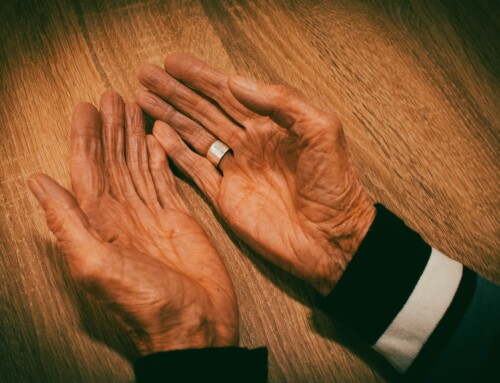One of the greatest fears that all people face as they grow older is that they will lose their independence. Family members may grow concerned about their Mom or Dad’s need for assistance, but the topic of senior care can be difficult to broach. Those wondering about the next steps should ask themselves some important questions to evaluate their loved one’s health and capabilities. Any one of these indicators may not necessitate assistance on their own, but several may point to a more definitive need for action of some kind.
- Household Chores: Everyone occasionally procrastinates when it comes to laundry or dishwashing, and it doesn’t indicate any kind of a problem. However, changes in your loved one’s habits may be a red flag. If they used to keep an impeccable house and now dishes are piling up in the sink, it may mean that they are no longer capable of maintaining their routine. If they were never a great housekeeper, however, the conditions may be deteriorating.
- Bruises or Injuries: If you are noticing that your loved one is losing their balance, struggling to get out of chairs, or cannot easily climb steps, they may need more supervision. Although they may be embarrassed to admit their increasing frailty, they may not be able to hide the resulting bruising or injuries. When navigating the house becomes unsafe, their family may wish to act before there is a more serious fall or injury. You may be able to make some changes to their current residence – such as adding grab bars in the bathrooms and removing rugs – but hiring a caregiver or moving to a safer residence may be necessary.
- Medication Management: Expired pill bottles, stockpiled prescriptions, or frequent early medication refill requests are all indicators that your loved one is struggling with the management of their medications. Whether they are not taking medications or taking too much, the situation can result in severe health consequences for your loved one. Intervening and helping can help to prevent side effects, hospitalization, and overdose.
- Driving: If your loved one’s car is suddenly showing unexplained scratches or dents – or if you notice tire tracks on the grass or along the driveway – your family member may be losing their ability to drive safely. After asking if they have been detained or cited recently, take a drive with them to gauge how they are doing. (Read: When Should Your Loved One Stop Driving?)
- Diet and Nutrition: As we age, our appetites often change, and this does not necessarily mean that there is a problem. Typically there is no need for concern if your loved one eats a little less or only eats a few favorite foods over and over. However, notable weight loss or gain can indicate a serious issue, as can an empty refrigerator.
- Hygiene and ADLs: If your senior loved one is struggling with hygiene, bathing, and grooming, it could be a sign of early dementia. If you notice changes in their appearance, such as unbrushed hair or teeth or dirty clothing, you may wish to investigate further. ( Read: Why Do ADLs Matter to Your Senior?)
- Bills and Responsibilities: If your loved one has fallen behind on bills or responding to mail, it could be a warning sign that they need help. Look for mail piled up on the counter, a full mailbox, or overdue bills as a sign of a potential problem.
- Apathy: If your parent no longer shows an interest in favorite activities, it may be time to intervene. Maybe they stopped attending their church or garden club or have put down their knitting or piano playing. This apathy towards previously enjoyable activities may indicate a lack of confidence or a decline in mental health. Family members may wish to encourage and facilitate engagement in pleasurable activities as it is essential for both cognitive and physical health.
- Isolation: If your senior has withdrawn from friends and family, it may be cause for concern. While some people are less social than others, it is a change in behavior that indicates an issue that may require assistance. Isolating oneself can be a sign of depression or a decline in cognitive wellness.
Remember, you are the best judge of what behaviors are normal for your loved ones – and which behaviors are new or uncharacteristic. If you think someone in your family needs assistance, find a time to speak with them calmly and empathetically. If you decide that assisted living is the right option, call A Banyan Residence for a tour and consultation. We are here to help.








